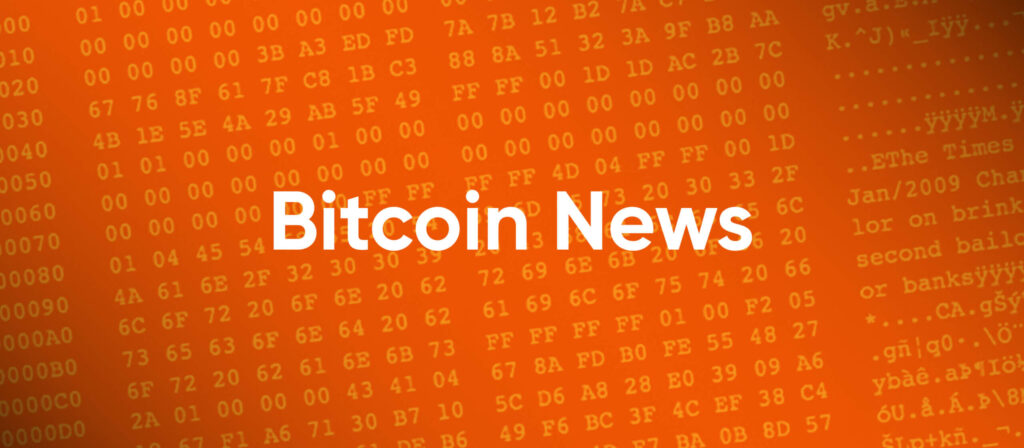The Financial Freedom Report is a newsletter focusing on the role currency and banking play in the civil liberties and human rights struggles of those living under authoritarian regimes. We also spotlight new tools and applications that can help individuals protect their financial freedom.
Good morning, readers!
In Kuwait, the government is escalating surveillance by mandating biometric fingerprint data for all citizens and threatening to restrict their financial accounts, assets, and government services if they fail to comply. This sweeping policy raises grave concerns over privacy and freedom, as it grants the regime unchecked access to biometric data and subjects nearly a million people to the risk of losing their savings, assets, and essential services.
Meanwhile, the Egyptian regime continues to burden its populace with rising costs, hiking the price of gas canisters by 50% overnight and exacerbating citizens’ ongoing cost-of-living struggles. Paired with a new law that strips away fundamental legal protections, Egypt’s leadership is more focused on financial and legal repression than addressing its people’s struggles.
In a negative step for privacy, Telegram’s recent decision to comply with government search warrants by handing over IP addresses and phone numbers of users marks a troubling compliance shift. On the more positive side of digital news, HRF grantee Boltz launched its BTC Pay Server plugin, enabling merchants to accept Bitcoin Lightning payments without needing to run a Lightning node, a big win for privacy and peer-to-peer commerce.
We end with an interview between Peter McCormack and HRF’s Nonprofit Bitcoin Adoption Lead Anna Chekhovich, who details the realities of life and activism under Vladimir Putin’s regime where activists, dissidents, and nonprofits face regular acts of repression, fabricated criminal charges, and asset seizures. For more insights into Putin’s brutal repression, we encourage you to watch the full interview.
Now, let’s dive right in!

Kuwait | Mandates Biometric Data for Access to Financial Accounts
The Central Bank of Kuwait is mandating citizens complete biometric fingerprinting by Sept. 30, or the regime will revoke access to bank accounts, assets, and government services. The mandate will roll out in four phases: first, citizens will receive reminder alerts, followed by the suspension of their electronic services and deactivation of their bank cards. By Dec. 1, all accounts will be frozen for those who don’t comply. Access to shares, funds, portfolios, and other financial assets will also be blocked. Loan installments and government benefit deductions, however, will continue to be withdrawn even after accounts are frozen. This forceful and unchecked access to biometric data risks privacy abuses and could be used to restrict citizens’ freedom of movement, expression, and financial activity. As Kuwait siloes its citizens in an exploitative financial system, nearly one million citizens may find themselves without access to their savings and assets.
Egypt | Rising Costs and Repression Deepen Financial Struggles
The Egyptian regime hiked the cost of gas canisters by 50% overnight, worsening the cost-of-living crisis for half of Egyptian households that depend on them. Canisters have increased in price by 1,775% over the last decade. Inflation now sits above 26% per annum following price increases in fuel, electricity, and bread earlier this year. While citizens grapple with rising prices, the regime is investing heavily in the military and secret police and is passing a new draconian law that strips away basic legal protections for individuals and activists. The new law would allow warrantless searches, limit lawyers’ access to clients, and restrict the monitoring of trials. Civil liberties groups warn it “will destroy foundational due process protections and usher in one of the most dystopian criminal justice frameworks in Egypt’s modern history.” Rather than address the economic plight of its people, Egypt’s leadership normalizes violations of due process under the guise of reform.
Zimbabwe | New ZiG Currency Faces First Official Devaluation
Zimbabwe’s Reserve Bank devalued its ZiG currency by 44%, dropping its official rate from 13.6 ZiG per dollar to 24.4 ZiG. This move aligns it closer to the parallel market, where the currency has already lost 80% of its value. Zimbabwe’s legacy of hyperinflation has re-shattered public confidence in the state’s ability to effectively manage the currency, and ZiG is no exception. This uncertainty, paired with liquidity issues and high demand for foreign currency, is reaccelerating inflation, pushing up Zimbabwe’s monthly inflation from 1.4% in August to 5.8% in September. Zimbabwe’s annual inflation stands at 57.5%. With nearly half of Zimbabweans living in extreme poverty — on less than $3.20 per day — further increases in the cost of living can mean the difference between food on the table or not.
China | Announces One-Time Cash Handout to Poor
The Chinese Communist Party (CCP) announced a one-time cash handout for those in poverty, which was scheduled for Oct. 1. The exact value of the handouts is unknown, but the policy is part of a broader plan to address China’s struggling economy, where the regime is also employing a 1 trillion yuan stimulus package and measures to support property markets. The cash subsidies will be distributed to disadvantaged groups such as orphans and the poor to demonstrate the “concern and care” of the CCP. Temporary financial relief won’t distract citizens for too long. This temporary measure creates a false narrative of relief and progress, masking a totalitarian economic system on the brink of collapse. It’s no coincidence that the CCP has been so restrictive against citizen Bitcoin use: it wants to trap citizens in a melting currency and close all the exits.
Israel | Tightens Financial Control with Push for Cashless Society and Digital Shekel
Israel plans to remove 200 shekel banknotes from circulation, which account for 80% of the banknotes held by the public. This proposed mandate is part of Israel’s plan to abolish cash entirely over the next few years and coincides with their development of a central bank digital currency (CBDC), the Digital Shekel. Alongside this, a proposed ban on precious metals, such as silver and gold, would restrict alternative forms of money and wealth preservation. To enforce these measures, the Israeli government plans to use artificial intelligence (AI) to monitor, collaborate with financial authorities (such as the Tax and Anti-Money Laundering Authorities and the police), and enhance oversight of “non-banking financial entities.” The nearly 3 million people who live under the West Bank under the Abbas regime will also be affected by this, as the Palestinian Authority doesn’t issue its own currency, and Palestinians are forced to use the shekel.
Tunisia | Strips Administrative Court of Ability to Rule on Election Disputes
President Kais Saied took another decisive step to solidify control over Tunisia by stripping the administrative court of its authority to rule on electoral disputes just days before the presidential election. This move removes the last independent check on his power, ensuring his grip on the election after disqualifying opposition candidates and jailing one of the remaining contenders, Ayachi Zammel, for 12 years. With only himself and his ally, Zouhair Maghzaoui, on the ballot and the administrative court stripped of authority, Saied has all but secured re-election. “We are witnessing the capture of the state days before the vote,” political activist Chaima Issa said, adding, “We are at the peak of absurdity and one-man rule.” Meanwhile, Tunisians face soaring prices, rising debt, and high unemployment. With opposition silenced and financial conditions worsening, Tunisians are trapped in a cycle of political repression and economic hardship.

Telegram | Announces New Compliance Measures
Global messaging platform Telegram announced it will now comply with legal requests from authorities and hand over users’ IP addresses and phone numbers when presented with valid search warrants. This policy departs from the platform’s previous apparent commitment to privacy and introduces risks for activists and dissidents who use Telegram to communicate under authoritarian regimes. Telegram CEO Pavel Durov argues this intends to combat criminal activity. Many fear, however, that it will pave the way for governments worldwide to surveil and target dissenters and place them at greater risk of persecution and repression. By compromising the privacy of its users, Telegram weakens its role as a tool for discrete communications under oppressive regimes. Human rights defenders should look to other options for encrypted peer-to-peer communications.
Boltz | Launches BTCPay Server Plugin
Boltz, a non-custodial bridge connecting different Bitcoin layers, launched the beta version of its BTCPay Server plugin, enabling merchants to accept Lightning payments without running a Lightning node. Using Boltz’s “nodeless” mode, merchants can process non-custodial transactions through Boltz’s Lightning node, which swaps incoming payments into a Liquid wallet under the merchant’s control. This approach offers reliably low fees and avoids complications like liquidity shortages or unexpected channel closures. By lowering technical barriers, Boltz empowers more merchants to participate in a decentralized and open-source financial system. HRF is encouraged by the growth of open-source financial solutions from teams like Boltz.
Tornado Cash | Legal Battle Set Precedent for Financial Privacy and Freedom
Tornado Cash, a decentralized and non-custodial privacy protocol that anonymizes digital asset transactions, is at the center of an escalating legal battle, with its developer, Roman Storm, now facing a criminal trial. Charged with money laundering, operating an unlicensed money-transmitting service, and sanctions violations, Storm’s trial marks a significant escalation in the fight for financial privacy. While Tornado Cash is accused of facilitating illicit activities, financial privacy tools are vital for anyone living under police state regimes. The trial sets an unsettling precedent, scaring developers away from building tools that can help human rights activists and any of the 5.7 billion people in this world who live under authoritarian regimes.
Alby | Launches Alby Go
Alby officially launched Alby Go, an open-source and self-custodial mobile Bitcoin Lightning wallet. With this new application, users can easily connect Alby Go to their Alby Hub node (which can be run on Umbrel or Start9 devices, as well as through Alby itself) to make fully sovereign Lightning payments. Alby Go also supports Nostr Wallet Connect (NWC) Lightning Wallets, offering a wide range of flexibility. Key features include a contact list for frequent transactions, a currency conversion tool, and theme customization. You can learn more about the release in the projects’ GitHub Repository. This tool is a nice way to use self-custodial Lightning on a mobile wallet.
Ashigaru | Releases Privacy-Centric Mobile Bitcoin Wallet
Ashigaru released v1.0.0 of its self-custodial, open-source, and privacy-focused mobile Bitcoin wallet. It is forked from Samourai Wallet’s source code and offers privacy-enhancing features such as BIP47 Payment Codes, Onion Routing over Tor (where data is enveloped in layers of encryption), encrypted key recovery, and a stealth mode. Ashigaru also supports peer-to-peer CoinJoins, a privacy-preserving technique that obfuscates transaction details by mixing the inputs of multiple transactions. For full functionality, users must connect the wallet to their own Dojo node (an open-source full-node wallet server). Progress of this wallet will be worth following, as it holds promise as an essential tool for individuals in highly surveilled regions. Users can test the wallet here.
bitcoin++ | Upcoming Bitcoin Developer Conference
From Oct. 11-13, Bitcoin developers will gather in Berlin, Germany, for the bitcoin++ developer conference to explore the forefront of Bitcoin ecash. Ecash is a privacy-focused and peer-to-peer digital money system backed by Bitcoin that, while custodial or federated, offers instant, cheaper transactions. Calle, a leading ecash developer, will present his groundbreaking work on Cashu, a free and open-source Chaumian ecash protocol that enhances the privacy and scalability of Bitcoin. Attendees will also learn about the latest advancements in federated ecash, network with industry leaders, and engage with the developers pushing Bitcoin’s privacy solutions forward. HRF is proud to support this event. Learn more about the conference here.
OpenSats | Announces Seventh Wave of Bitcoin Grants
OpenSats, a nonprofit funding free and open-source software and projects, announced its seventh round of grants for Bitcoin-related projects and developers. Among the recipients is Minibits, which is developing an open-source mobile Cashu wallet that integrates Bitcoin and Lightning for ecash payments. It also supports LNURL Pay, the Tor Network, and Zaps, making it a valuable tool for those seeking private payments. Floresta, is building a modular Bitcoin node implementation that improves node synchronization speed and the accessibility of running nodes, helping users maintain financial sovereignty and further decentralizing the network.
Recommended Content
Putin’s Russia: Corruption, Murder, and the Resistance with Anna Chekhovich
In this episode of Mr Obnoxious, Peter McCormack interviews Anna Chekhovich, financial director of Alexei Navalny’s Anti-Corruption Foundation and HRF’s nonprofit bitcoin adoption. They discuss life under Putin’s regime, detailing the Russian regime’s use of fabricated criminal charges, police raids, and asset seizures to target activists and suppress dissent. Chekhovich shares her experience navigating these threats, including her colleague’s arrest and the confiscation of significant funds, showcasing how financial repression can stifle activism. She emphasizes the risks for protesters in Russia but also reflects on the strength and determination drawn from Navalny’s leadership. You can watch the full episode here.
Wasabi Wallet and CoinJoin Tutorial by BTC Sessions
This tutorial from renowned Bitcoin educator Ben Perrin demonstrates how to set up and use Wasabi Wallet and enhance financial privacy through CoinJoin, a privacy-preserving technique. It covers verifying the wallet download, using Wasabi with a hardware wallet, securing your Bitcoin, and learning how to CoinJoin. Perrin also demonstrates connecting the wallet to your Bitcoin node for even greater privacy and autonomy. If you’re an activist seeking privacy in financial transactions, this tutorial is for you. You can watch the full video here.
Webinar Series: How to Use Bitcoin for NGOs
HRF will host a three-day long webinar designed specifically to teach human rights defenders and nonprofit organizations how to integrate Bitcoin into their work to challenge state censorship and confiscation. From Nov. 4-6, 10:30 EDT to 12:00 EDT daily, participants will learn what Bitcoin is, how it counters financial repression, how to make payments, and how to maintain financial privacy under surveillant regimes. If you’re an activist or a nonprofit organization, we invite you to apply here.
– If this email was forwarded to you and you enjoyed reading it, please consider subscribing to the Financial Freedom Report here.
– Support the newsletter by donating bitcoin to HRF’s Financial Freedom program via BTCPay.
Want to contribute to the newsletter? Submit tips, stories, news, and ideas by [email protected].
The Bitcoin Development Fund (BDF) is accepting grant proposals on an ongoing basis. The Bitcoin Development Fund is looking to support Bitcoin developers, community builders, and educators. Submit proposals here.







